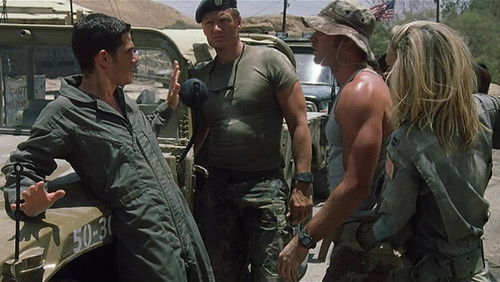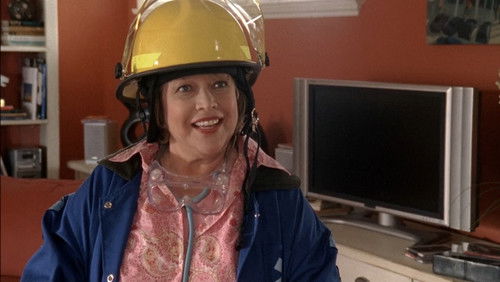Kaltes Land (2005)
48KKaltes Land: Directed by Niki Caro. With Charlize Theron, Thomas Curtis, Elle Peterson, Frances McDormand. A fictionalized account of the first major successful sexual harassment case in the United States, Jenson vs. Eveleth Mines, where a woman who endured a range of abuse while working as a miner filed and won the landmark 1984 lawsuit.
“Niki Carou0026#39;s North Country dazzles us with its unfaltering right-mindedness even as itu0026#39;s hammering us silly with ploys so shameless even Frank Capra would be embarrassed to have anything to do with them. You might call this the Schindleru0026#39;s List approach – taking a position that no rational, halfway-educated person would dare oppose, then slipping in under this iron-clad cover to deliver the most unblushing exercise in emotional manipulation imaginable. Who would dare contend that the poor, down-trodden heroine of North Country, Josey Aimes, isnu0026#39;t a courageous soul for standing up to all the icky iron-ore-miners who so vilely harass her and her female co-workers? Thereu0026#39;s always a core of indisputability to movies like North Country, but around this concrete nucleus lie so many layers of bull that it no longer matters if the central premise is unassailable. Why is it necessary to resort to shameless movie tricks in the name of a truth ninety-percent of the audience would already regard as self-evident? Is it some instinct for emotional chicanery, some need to push the story beyond the factual and into some fantasy-land of super-nobility? Or is it simply that people like Niki Caro, and Spielberg, and Capra before them, donu0026#39;t trust their audienceu0026#39;s ability to absorb the facts themselves, and feel they must garland them with simple-minded absolutism, didacticism and de-glamorization as a way of guaranteeing their message gets across? u003cbr/u003eu003cbr/u003eThe real-life drama concerns Josey Aimes (Charlize Theron), a married mother-of-two who leaves her abusive husband for the snow-swept hinterlands of Northern Minnesota, there to take up residence with her taciturn iron-miner father (Richard Jenkins) and soft-spoken mother (Sissy Spacek). Josey resolves herself not to fall into another bad relationship in the name of simple security; she needs the kind of job that will let her support her two kids herself, and the only job available is as a menial laborer in the mines, where the physical dangers inherent in extracting iron-ore come second to the ones posed by the primitive-minded, brazenly sexist, bodily-function-obsessed men who work there. Josey and the other girls are tough-cookies who can handle a little razzing, but what happens to them goes beyond chummy jocularity; the male miners resent the women, their intrusion upon the hallowed male workspace, and take obscene pleasure in systematically intimidating them. Josey comes in for an inordinate share of abuse thanks to the presence of an old high-school flame, Bobby (Jeremy Renner), whose attitude toward her remains proprietary, and thanks to her own dodgy sexual history, which gives the miners and their wives plenty of excuse to berate her. But Josey is not the kind to just turn-tail and run; she goes to management, which demonstrates no desire to shake-up the profitable status-quo by addressing the gripes of a single ill-treated woman, and when this doesnu0026#39;t work she turns to a down-on-his-luck lawyer, Bill (Woody Harrelson), who agrees to bring her case to court as a class-action suit, provided she can convince more of her harassed female co-workers to take up the cause.u003cbr/u003eu003cbr/u003eMovies like North Country are inherently patronizing – not just because they depict lower-class people in a hollowly ennobling, often stereotypical way, but because theyu0026#39;re made under the assumption that the gist will not get across to average people unless the factual story is dressed-up with melodramatic plot-movements, emotionally explicit acting and direct preaching. Niki Caro and her team are not interested in simple facts – rather than present the story straight-forwardly, even-handedly, they go out of their way in jacking the outrage to a fever pitch, emphasizing the yawning gulf between the ape-like behavior of the men and the saintly durability of Josey, who derives more radiance and strength from each insult and provocation. The situation is seen almost entirely from Joseyu0026#39;s point-of-view; the miners are a mass of hateful, vaguely grotesque humanity, a bunch of craggy-faced gargoyles in soiled coveralls, the managers and owners similarly callous, freakish monsters thinly glossed with duplicitousness. The photography emphasizes the hard, ugly faces of the miners while bringing out Joseyu0026#39;s own angelic glow; the movie divides humanity into bad people, who look like evolution has passed them by, and good people, who are all understatedly attractive. The heroine, Josey, is played by Charlize Theron less as a suffering human being than a symbol of feminine resolve in the face of patriarchal insensitivity. Theron was so impressive in Monster because she could affect pride and toughness while keeping her emotions close to the surface; in North Country Theronu0026#39;s emotions crack the tough exterior, spilling forth in scene-after-scene of bawling, blubbering and snot-blowing. The emotions are pushed so forcefully by Theron and Caro that they become unseemly; we start out being ashamed of the behavior of the miners, but wind up more embarrassed for Theron, who is alternately a de-glamorized, quasi-iconic figure (she becomes almost Eisensteinian in her head-bandanna and coveralls) and a spewing tear-factory. Wouldnu0026#39;t we feel sympathy toward Josey even if Theron didnu0026#39;t turn every scene into a display of her ability to prole herself out, act the toughie or crumble into a mass of quivering, Oscar-worthy jelly? Wouldnu0026#39;t we applaud the triumph of the just over the greedy and heartless even if the courtroom scenes didnu0026#39;t degenerate into wild contrivance? The movie sells itself too hard; itu0026#39;s not content to rest on being right, but must stagger us with its rightness, resorting to such base trickery that it undermines its own position, becoming nearly as crude-minded, as smugly self-assured as the people itu0026#39;s against.”









